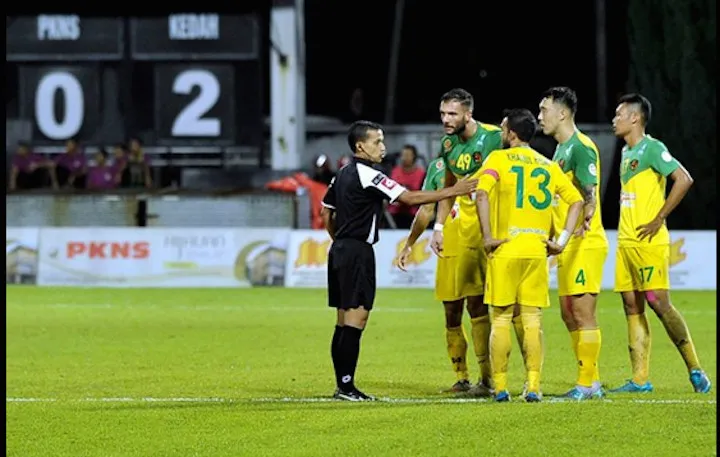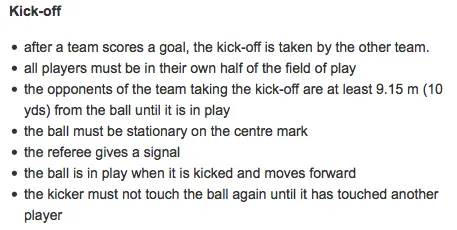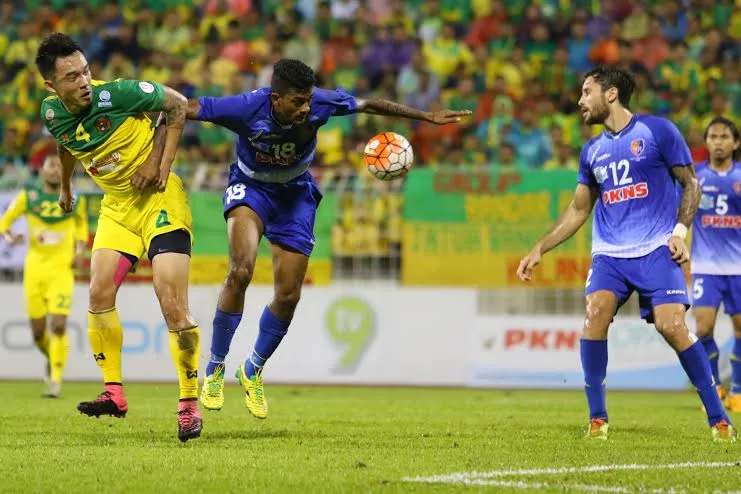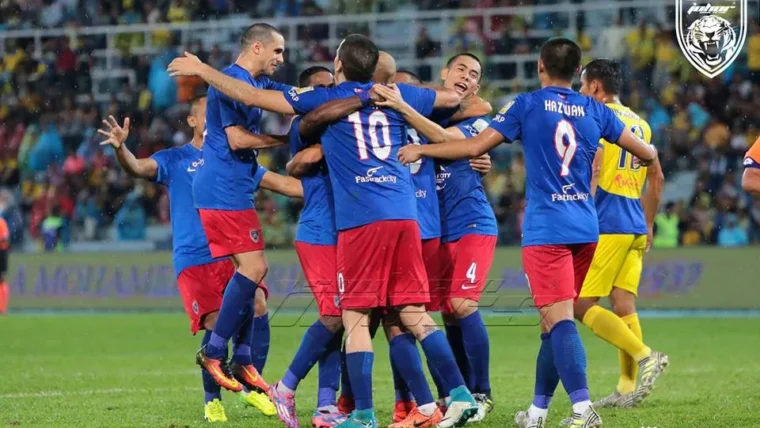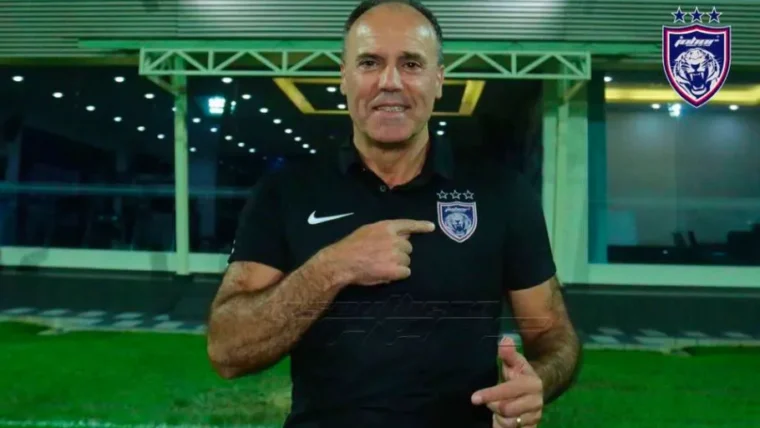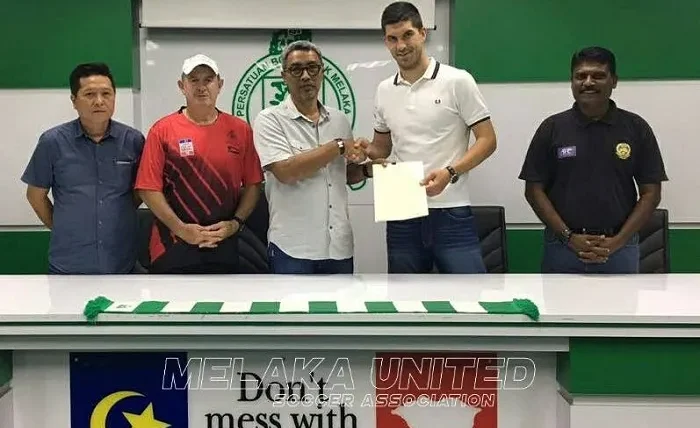Kedah and PKNS contested a rather controversial game of football at the Selayang Stadium on Saturday night – though the Canaries eventually progressed into the semi-finals of the Malaysia Cup after securing a 3-1 win [4-2 on aggregate] on the night.
But while fans were visibly jubilant at the end of the game, there was a sense of bitterness as well, with regards to an incident that took place in the second half of the tie. So let’s break the whole fiasco down to several parts.
WHAT HAPPENED?
Kedah went 1-0 up thanks to Chidi Edeh’s opening goal in the first half, but things took a wild turn on the 68th minute of the second half. The Canaries were awarded a free kick on the right edge of the box. Sandro da Silva stepped up and executed a perfect attempt, which found its’ way into the back of the net to make it 2-0. The nature of the goal, coupled with the fact that they were 3-1 ahead on aggregate, gave the Kedah players plenty of reasons to celebrate as they raced towards their touch-line to celebrate with the technical staff. The PKNS players on the other hand, wasted no time by regrouping and having the ball placed in the middle of the park, ready for kick-off.
https://www.youtube.com/watch?v=zDK3NTa3jsc
At this point in time, the match official opted to blow the whistle and allow the game to be restarted, despite the fact that most Kedah players were still celebrating. The home side raced ahead and scored to make it 3-2 on aggregate. The incident sparked massive protests on the pitch, though a few minutes later, the game resumed. Both the Kedah squad as well as fans were visibly unhappy with the decision, despite scoring a late goal to secure a 4-2 win and book their spot in the next round of the competition.
WAS IT THE RIGHT DECISION?
This particular case was slightly confusing because while the decision initially looked justified, it became questionable after a deeper look at the incident. To understand the conundrum, we went through the official rulebook that was provided by FIFA.
According to FIFA, all players must be in their own half of the field of play, before the referee is authorized to allow the game to be kicked off. While the choice of words may make it seem like it’s required for all players to be back in their respective positions, before kick off is allowed, the context can be a lot more nuanced than that. Initial replays showed that the entire Kedah squad was celebrating within their own technical area, which was unfortunately in their own half. Hence, as soon as the PKNS players were prepared to get the game going, the referee’s decision to proceed with the restart is justified – as far as the legality of it is concerned.
A similar incident took place during the UEFA Development Tournament earlier this year. Macedonia were taking on Gibraltar in the final of the tournament and it was a tightly contested affair as well. But right at the end of the game, Macedonia scored via a corner kick, sparking massive celebrations on the touch lines, as all their players – just like the Kedah lads did – raced towards their coaches and technical staff members. While they were engaged in the prolonged celebration, Gibraltar regrouped, restarted the game and went on to score the equalizer, which allowed them to clinch the tournament title on goal difference. The match official justified his incident by pointing out that the Macedonian players were inside their own half when the match was restarted.
However, there seems to be a minor difference in the Kedah-PKNS fiasco, which makes the referee’s decision at the Selayang Stadium, questionable. Photos taken by fans at the stadium, have revealed that Baddrol Bakthiar was present within PKNS’ half, just as the game was allowed to restart.
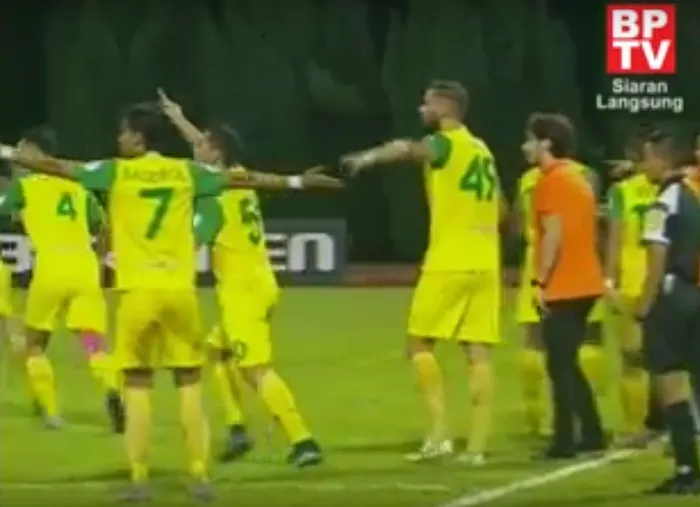
WHAT ABOUT SPORTSMANSHIP?
So let’s assume the decision was legally justified. The question then becomes about sportsmanship. Is it fair to assume that PKNS were directly against principles of sportsmanship, by opting to restart the game while the Kedah players were celebrating? Perhaps. But there are always two sides to the coin. The game was already heated up, prior to that particular incident. Tackles were flying everywhere and there was a general sense of tension about this particular game, considering what was at stake.
So it’s understandable if PKNS’s priority on the day, was about getting the goal they needed to give themselves a fighting chance of securing a semi-final slot. As much as we’d like to prioritize principles of sportsmanship, football is rarely as black and white as we’d prefer it to be. Within the context of Malaysian football for instance, matches of this stature can play a big part in determining the future of a player – considering how volatility continues to plague and affect the treatment that players receive from their own clubs.
But at the same time, the frustration within the Kedah camp is perfectly understandable. It’s not a common etiquette within World Football – in fact it rarely ever happens. You could argue that PKNS did disrespect their opponents by opting to restart the game in the manner in which they did, last weekend. Perhaps, the match official should have been far more diligent with his approach during the game. After all, he’s the only neutral party that’s expected to not be emotionally-charged during the game. Objectively, he could have opted to wait for the Kedah players to return to their position, before allowing play to be restarted.
That being said, the lack of sportsmanship should never influence the legality of this matter – which in this case, is walking on thin ice.
Other posts by Keeshaanan Sundaresan

